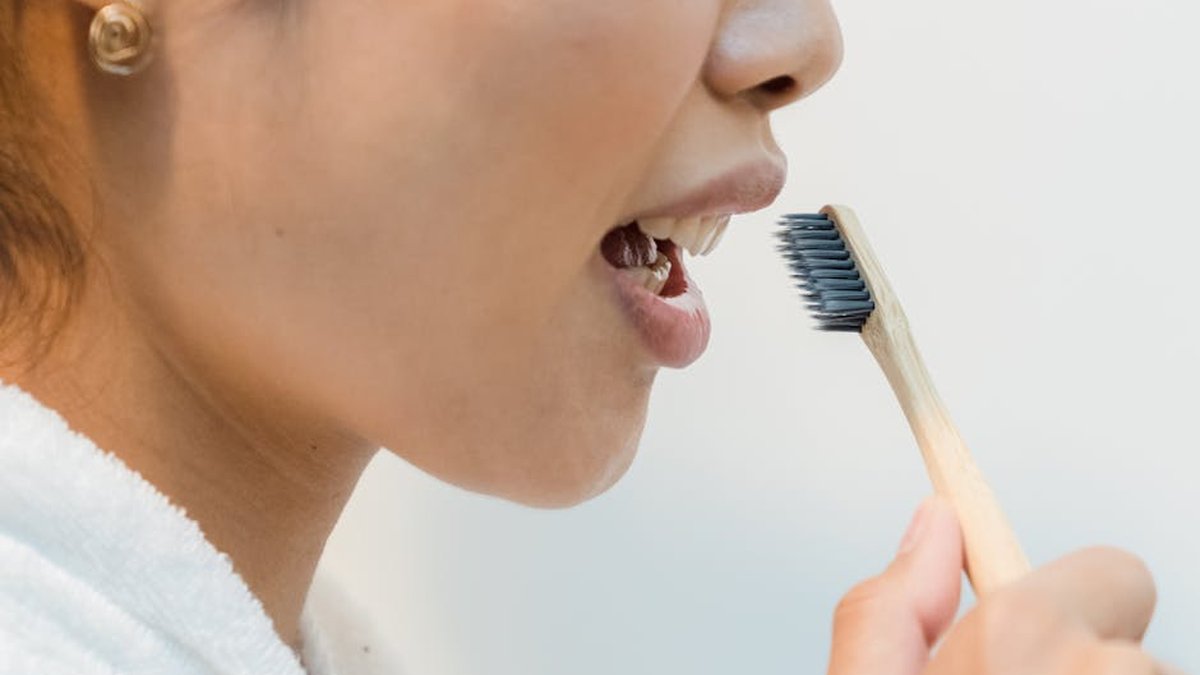10 Everyday Habits That Are Secretly Damaging Your Teeth
Introduction: Are Your Daily Routines Ruining Your Smile?
We all strive for healthy teeth, diligently brushing and flossing, but sometimes, despite our best efforts, dental problems persist. The culprit? Often, it’s everyday habits we don’t even realize are harmful. These seemingly innocuous actions can slowly erode enamel, promote bacteria growth, and ultimately lead to cavities, gum disease, and a less-than-sparkling smile. Let’s uncover these dental saboteurs and learn how to break free!
1. Chewing Ice: A Chilling Threat
Many people find chewing ice a refreshing habit, especially on a hot day. However, dentists strongly advise against it. The hardness and cold temperature of ice can cause:
- Microfractures: Tiny cracks in your enamel that weaken your teeth over time.
- Chips and Breaks: More significant damage, potentially requiring dental work.
- Sensitivity: Increased sensitivity to hot and cold temperatures.
Tip: If you crave the sensation of chewing, try sugar-free gum instead. It stimulates saliva production, which is beneficial for oral health.
2. Constant Snacking: A Feast for Bacteria
While healthy snacking can be part of a balanced diet, frequent snacking, especially on sugary or starchy foods, provides a constant food source for bacteria in your mouth. This leads to:
- Acid Production: Bacteria break down sugars and starches, producing acid that attacks tooth enamel.
- Increased Cavity Risk: Prolonged acid exposure increases the risk of developing cavities.
Tip: Limit snacking between meals and choose healthy options like fruits, vegetables, or cheese. Rinse your mouth with water after snacking to help neutralize acids.
3. Sugary Drinks: A Sweet Assault
Sodas, juices, and even sports drinks are loaded with sugar, making them a major contributor to tooth decay. The sugar feeds bacteria, leading to acid production and enamel erosion. Even diet sodas can be problematic due to their acidity.
Tip: Opt for water, unsweetened tea, or milk instead. If you do consume sugary drinks, use a straw to minimize contact with your teeth and rinse your mouth afterward.
4. Grinding Your Teeth (Bruxism): A Silent Destroyer
Teeth grinding, or bruxism, often occurs unconsciously, especially during sleep. It can cause significant damage, including:
- Enamel Wear: Grinding wears down the protective enamel layer, making teeth more susceptible to decay and sensitivity.
- Jaw Pain: Bruxism can lead to jaw pain, headaches, and temporomandibular joint (TMJ) disorders.
- Tooth Fractures: Excessive grinding can cause teeth to chip or fracture.
Tip: If you suspect you grind your teeth, consult your dentist. They may recommend a mouthguard to protect your teeth during sleep. Stress management techniques can also help reduce bruxism.
5. Using Your Teeth as Tools: A Risky Shortcut
Opening packages, tearing tags, or cracking nuts with your teeth might seem convenient, but it’s a surefire way to damage them. This habit can lead to:
- Chips and Cracks: Putting excessive force on your teeth can cause them to chip or crack.
- Jaw Strain: Using your teeth as tools can strain your jaw muscles.
Tip: Use appropriate tools for the job! Keep scissors, bottle openers, and nutcrackers handy.
6. Over-Brushing: Too Much of a Good Thing
While brushing is essential, brushing too hard or using a hard-bristled toothbrush can damage your gums and enamel. This can result in:
- Gum Recession: Over-brushing can cause your gums to recede, exposing the roots of your teeth.
- Enamel Erosion: Aggressive brushing can wear away enamel, making teeth more sensitive.
Tip: Use a soft-bristled toothbrush and gentle circular motions. Let your toothbrush do the work, not your force.
7. Not Drinking Enough Water: A Dry Mouth Dilemma
Saliva plays a crucial role in oral health. It helps neutralize acids, wash away food particles, and remineralize enamel. Dehydration leads to dry mouth, which can increase the risk of:
- Cavities: Reduced saliva flow allows bacteria to thrive and produce more acid.
- Gum Disease: Dry mouth can contribute to inflammation and gum disease.
Tip: Drink plenty of water throughout the day to keep your mouth hydrated. Sugar-free gum can also stimulate saliva production.
8. Smoking and Tobacco Use: A Double Whammy
Smoking and using tobacco products are detrimental to overall health, including oral health. They can cause:
- Gum Disease: Tobacco use weakens the immune system, making it harder to fight gum infections.
- Tooth Discoloration: Tobacco stains teeth, leading to an unsightly appearance.
- Oral Cancer: Tobacco use is a major risk factor for oral cancer.
Tip: Quit smoking and using tobacco products to protect your oral and overall health.
9. Nail Biting: A Nervous Habit with Consequences
Nail biting can introduce bacteria into your mouth and damage your teeth. It can lead to:
- Chipped Teeth: The pressure of biting nails can cause teeth to chip or crack.
- Jaw Problems: Nail biting can strain your jaw muscles and contribute to TMJ disorders.
Tip: Identify triggers for nail biting and find alternative ways to cope with stress or anxiety. Consider using bitter-tasting nail polish to deter the habit.
10. Ignoring Dental Checkups: A Costly Mistake
Regular dental checkups are essential for maintaining good oral health. Dentists can detect problems early, before they become more serious and costly to treat. Skipping checkups can lead to:
- Untreated Cavities: Small cavities can grow into larger problems if left untreated.
- Gum Disease Progression: Early detection and treatment of gum disease can prevent tooth loss.
Tip: Schedule regular dental checkups and cleanings as recommended by your dentist.
Conclusion: Protecting Your Pearly Whites
By being mindful of these everyday habits and making small changes, you can significantly improve your oral health and protect your smile for years to come. Remember, prevention is key! Regular dental checkups, combined with healthy habits, are your best defense against dental problems. Take control of your oral health today and enjoy a brighter, healthier smile!






